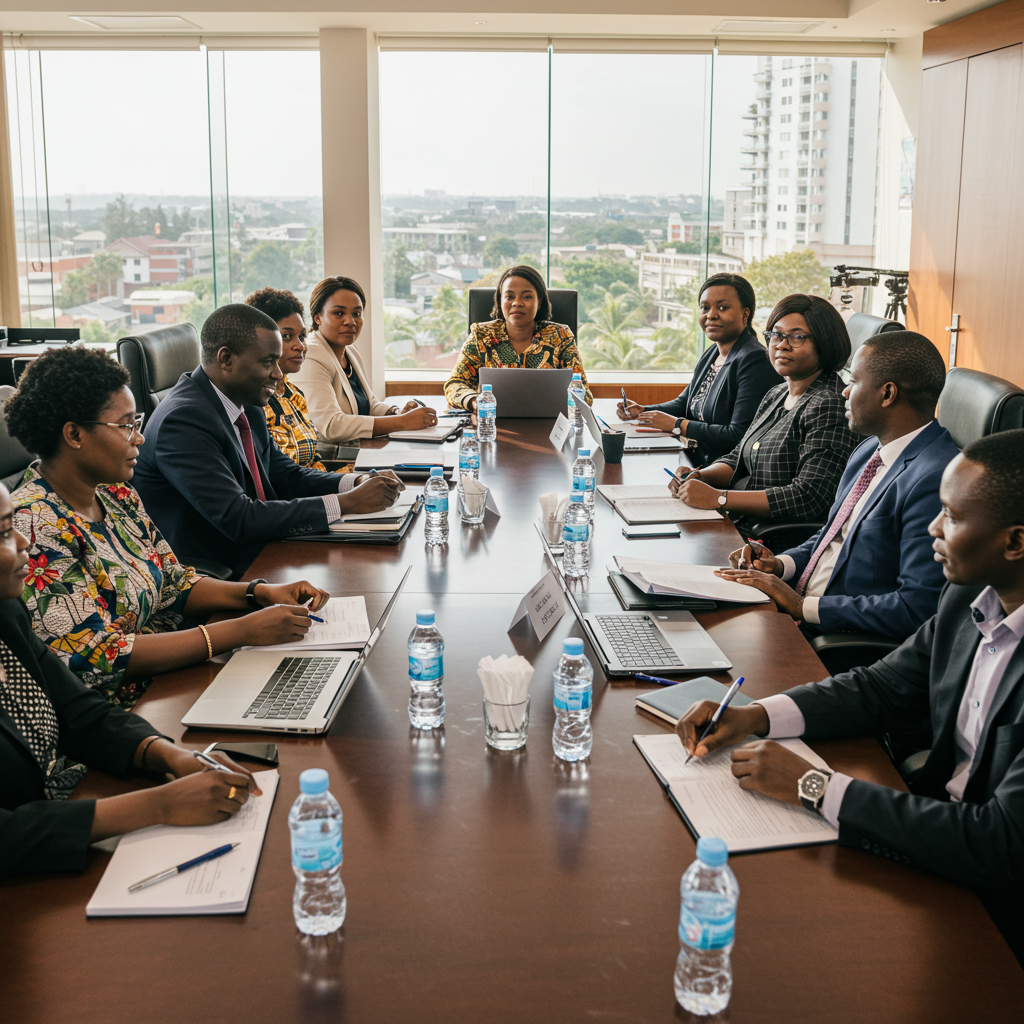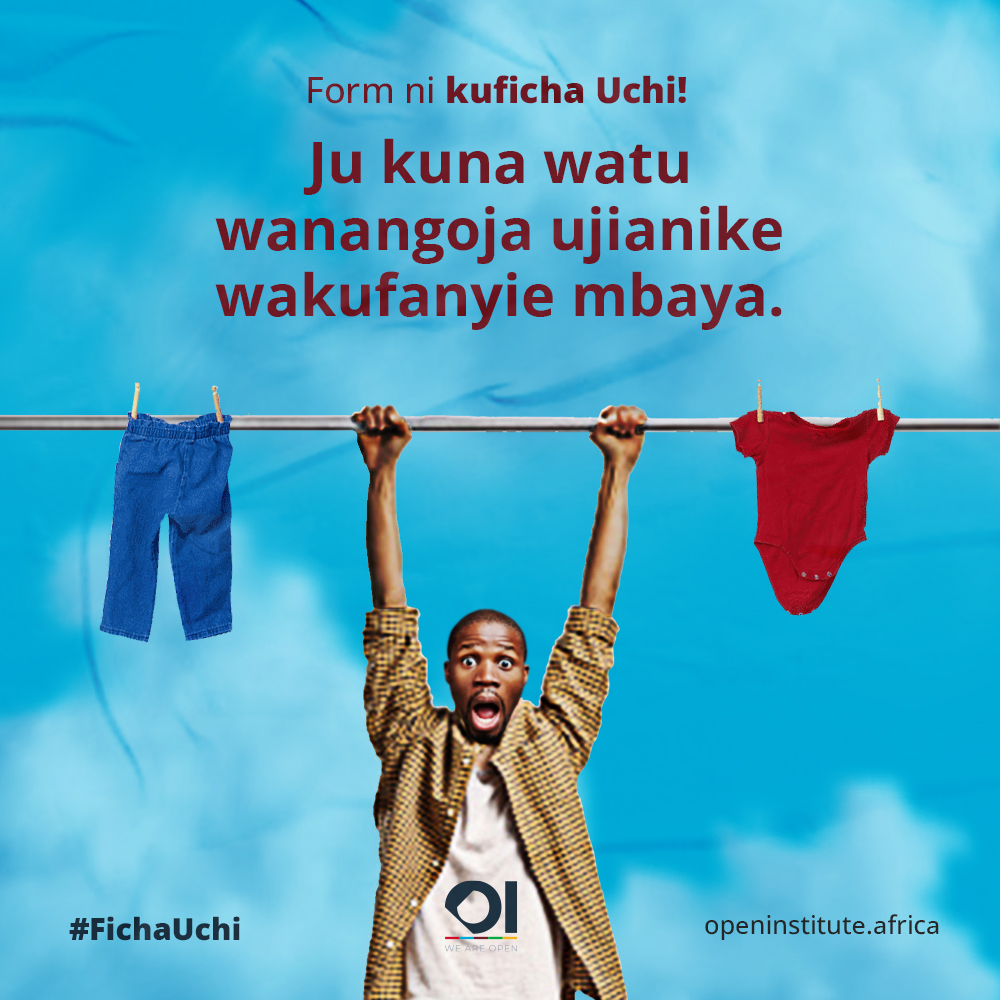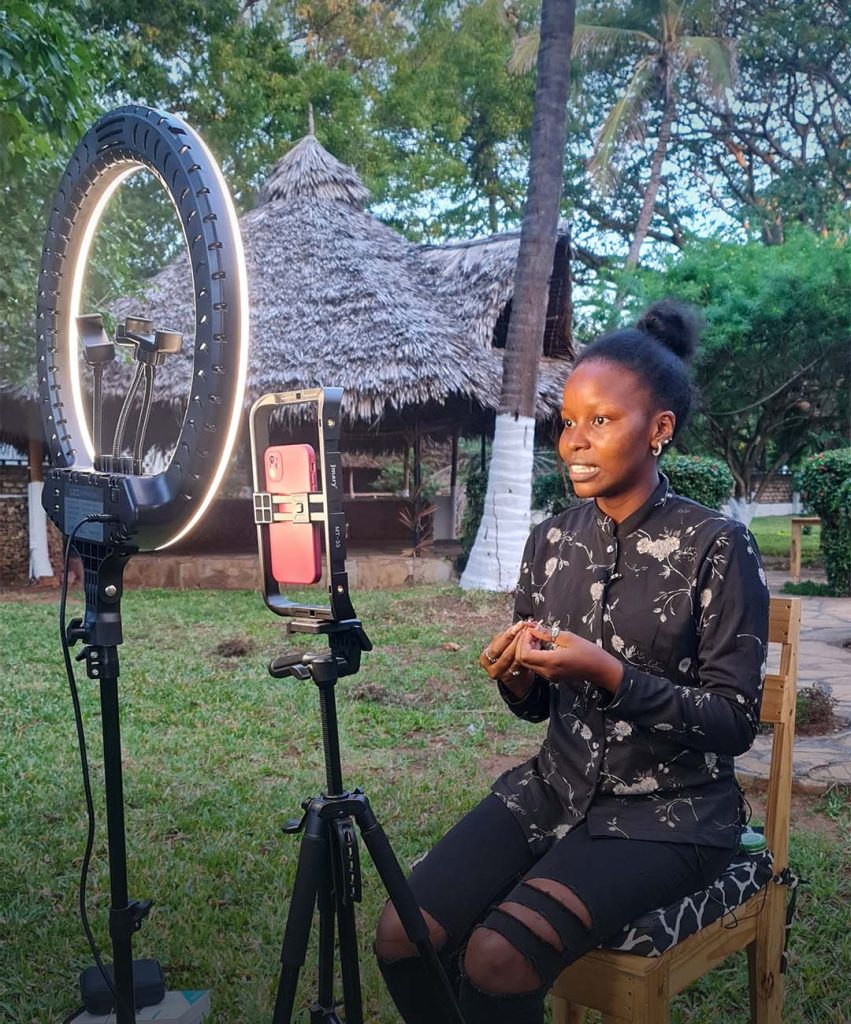When the world committed to #Leavenoonebehind, it came with a responsibility to “endeavour to reach the furthest behind first”. People in remote areas are some of the most left behind groups. The following story, for instance, should paint a picture of how far back they are, and the silver lining that might be explored to catalyse their catch up.
Sophia.
We met with a girl called Sophia. She is a jovial and spirited 23-year old who lives in Malindi, Kilifi County. She is the 3rd born in a family of four that is housed in a tiny one-roomed hovel in the bustee of this small town. Her dad passed away when she was a toddler and so her mother assumed the role of breadwinning. She (Sophia’s mother) sells homemade juices and cashew nuts just outside their house. But this endeavour has barely been giving, especially because of the pandemic. As a mother does, she has tried other means of making ends meet, but they have been vain.
Sophia wishes she could work to support her struggling mother, but hers is a complex issue. Like many girls in rural Kenya, she is functionally illiterate. She dropped out of school in class 8, never once stepping foot into secondary school. She can do a bit of math, but her knowledge extends as far as basic addition and subtraction. She can speak very fluent Swahili, and a few put together a few sentences in Italian, but she can hardly string two words in English — spoken or written.
She has knocked on many doors to request for casual work and for each knock she has received a corresponding “no”. According to her, this is so because first she did not go to school, she is short, she is a girl and she is different*. “I live like a bird,” she has told us, “surviving on the grace of God each day.”
For a Gen Z, Sophia has missed (and is missing) out on so much. She may not be able to make use of a laptop if you left her with it, and the concept of self drive cars is far removed from her imagination. She does not have an active bank account and does not save, because as we have explained, she scarcely makes any money. She has not been to a vacation, nor has she ever had her birthday celebrated. She has not been to Nairobi, and the way she talks about it as if it were a shining city in the Western world will stun you. When she is drowning in her overpowering stresses, she sometimes indulges in smoking or drinking to catch some breath and keep alive.
Ever and anon when she manages to get the WiFi password of the restaurant near her house, she pops into the world of social media through Facebook , Tiktok and Youtube. She is more of a consumer than a contributor of content, and she has not seen anything she might do actively participate. Mostly, she is watching comedy or music videos. She has heard of apps like Instagram, Twitter or Snapchat, but she’s not on them because they are for “Nairobians”.
Sophia + Thellesi Trust.
Sophia is not an isolated story. There are many other young girls like her across the country — especially rural Kenya. Through our Wakenya Project, we are continuing to interact with youths in such places and learning many things about their perspectives and mental models that shape their lives. We are understanding that they all have unique needs and priorities, and that generalising their issues means that many don’t get touched by the interventions directed towards them. We are also learning that they share commonalities, which can be leveraged to reach many of them all at once. One of the commonalities we have found is their desire to emerge from the shadows.
Sophia, for instance, attended the Content Creators Meet-up that we participated in organising late last month. She was intrigued by what she heard and saw, so much so that she desired to start making her own content. Even more, she featured on Wabosha Maxine’s (a popular Youtuber) travel vlog, where she actively participated in the making of the video and got the mental model of how she can use her smartphone to improve her life and possibly make a living through content creation. This, to us, is a huge milestone — that through our activities, we managed to inspire a girl who had not heard the term ‘content creation’ and did not know what it was, to consider being a content creator, without any short term gains for her.
We are now supporting Sophia to explore content creation to the fullest extent to which she can. We are exposing her to a lot more ideas so that she may grow in imagination. We have supported her to create a gmail account, to open a youtube channel, and we have been helping her shoot and edit her videos. Additionally, we have attached her with an established content creator to mentor her though her journey.
We have also linked Sophia with Lit Initiative, which is a local CBO led by Jackie Mungai that promotes functional literacy among young adults in Kilifi County. Through Lit, Sophia will be able to expand her knowledge in English, Math, Civic, Financial and Digital Literacy. Furthermore, through Lit’s Life Skills Program, Sophia will acquire the skills and mindset needed to take her through her daily life.
We have a strong conviction that exposing people to new ideas and experiences is a step towards behaviour change. Our work with Sophia is just the beginning. We hope to inspire other youths in Malindi (where we are currently working) to take on Sophia’s path.
We shall keep you updated on the progress we are making with Sophia on her content creation journey. We invite you to partner with us or share any ideas you might have about how we can change Sophia’s life (and that of many others) on the comment section below or by DM-ing us on any of our social media platforms (@thellesitrust).


